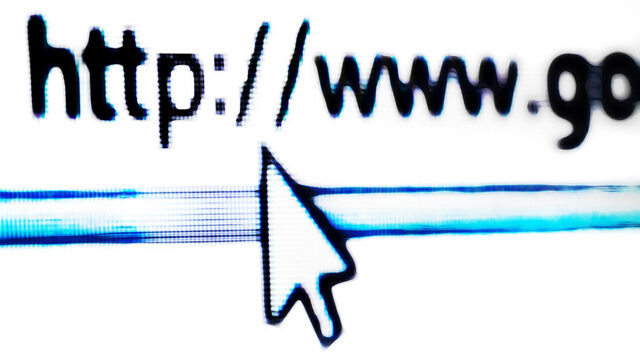
Internet investigations: Hoaxes, algorithms and ethics
The internet is a place where there is perhaps as much misinformation as there is information. When looking back on 2015, it is clear that search engines play an important role in information gathering in our everyday lives. Citizens look online for the big questions such as world peace as well as the little questions such as when the Oscars are on television. With millions of answers at our fingertips, the ability to find an accurate and truthful answer is more important than ever. How can citizens discern the truth in what may seem like a web of lies? When using resources on the web, there are three key issues that should be considered.
1. Hoaxes
Internet hoaxes appear in a variety of forms from clickbait to phishing scams. Designed to get attention and provoke reactions, hoaxes are more than harmless pranks as they often target vulnerable people. When hoaxes are spread virally, the level of misinformation can cause immense distress and lead to tragic consequences. Thus awareness of hoaxes can help prevent the spread of misinformation and may even save lives. Kibby (2005) notes:
Email communication provides unprecedented movement of information between individuals and groups, ‘but new communications technologies in no way change age-old human propensities to lie, gossip or simply repeat bad information’ (Matzkin, 1996: 34).1
Though Kibby refers to email, it is still relevant to other forms of computer mediated communication including social media. Perhaps the golden rule of the internet should be don’t believe everything you read. Furthermore, consider evaluating the credibility of the sources of information. For example, this article from The Conversation lists techniques such as reverse image searching, using YouTube dataviewer and referencing online maps to check online sources of information. Sometimes a simple search online will unmask a hoax. It is also worth checking on the website Snopes which is dedicated to debunking “urban legends, folklore, myths, rumors, and misinformation”.
2. Algorithms
Search engines and social media results depend on algorithms to display their results. Along with paid and sponsored material, this means that top trending results are not necessarily reflective of significance. Take for example, Viral News stories on Facebook. These posts are often clickbait at best and misinformation at worst. The article linked demonstrates how the process of information displayed can be influenced by the type of website we are getting our information from – and in this case, also shows how we can exert some control over the material that appears. Eli Pariser called this “The Filter Bubble” as cited here by Matt Cardin (2012), describing the effect that searches are filtered, or personalised, for us so that we end up seeing what is chosen by the website instead of simply what exists. Green (2011) adds further:
The problem is that we don’t get to decide what gets through our filter. Yahoo, Google, and Facebook are now doing that for us. More important, we don’t see what gets edited out, so we don’t even know what we’re missing.
It is worth considering in our internet investigations then that the process of gathering information may inherently privilege some sources and silence others. Thus, one may need to widen the web of sites used for research.
3. Ethics
Are there times when searching on the internet may be unethical? Does intent matter? With limitless answers that can be recalled in under a second, it can be tempting to play internet sleuth. However, as Dewey (2014) notes, even well-intentioned internet investigations can hurt police operations. In the aftermath of the Boston bombings, Redditors came together to comb through news footage to find the bombers resulting in innocent civilians being wrongly identified as perpetrators. The question of ethics thus also applies to sharing information carelessly as this can cause damage to people’s reputation and cause unnecessary panic. Another area where searching for information is unethical is cyberstalking – when one uses search engines or social media to violate someone’s privacy and to bully or harass victims. All of these examples illustrate why it is important to ask what information is being used for and why research is taking place, and to share information responsibly.
Additionally, internet mediated research [IMR] is a topic that is a growing area of interest for researchers across disciplines which often touches on ethical processes and outcomes. A study reported in a 2015 conference paper by Koene, Perez, Carter, Statache, Adolphs, O’Malley, Rodden and McAuley2 explores ideas such as privacy, valid consent and evaluating the value of research against potential harm. In another recent study, Teitcher, Bockting, Bauermeister, Hoefer, Miner and Klitzman explore fraudulent results in internet mediated research3. Such studies are important as they acknowledge the advantages and disadvantages of internet research as well as coming up with a framework for detecting, responding to and preventing “fraudsters”. By looking at ways of improving IMR, researchers “ensure research integrity, and hence scientific and social benefits” (Teitcher et. al., 2015).
The three key issues of hoaxes, algorithms and ethics tackle the themes of truth, accuracy and responsibility. The latter is perhaps often overlooked but is arguably most important. As the famous quote from Uncle Ben in Spider-Man (2002) goes, “With great power comes great responsibility.” This is relevant to the power of research facilitated by the internet – one should consider the impact that this method of research has on results and consider ethical use of information online.
Image source: Internet! 243/365 by Dennis Skley is licensed by CC BY-ND 2.0.
References:
- Kibby, M. D. (2005). Email forwardables: folklore in the age of the internet. New Media & Society, 7(6), 770-790. ↩
- Koene, A., Perez, E., Carter, C. J., Statache, R., Adolphs, S., O’Malley, C., Rodden, T., & McAuley, D. (2015, February). Research Ethics and Public Trust, Preconditions for Continued Growth of Internet Mediated Research. In 1st International Conference on Information System Security and Privacy (ICISSP) (pp. 9-11). ↩
- Teitcher, J. E., Bockting, W. O., Bauermeister, J. A., Hoefer, C. J., Miner, M. H., & Klitzman, R. L. (2015). Detecting, preventing, and responding to “fraudsters” in Internet research: ethics and tradeoffs. The Journal of Law, Medicine & Ethics, 43(1), 116-133. ↩
Also published on Medium.






